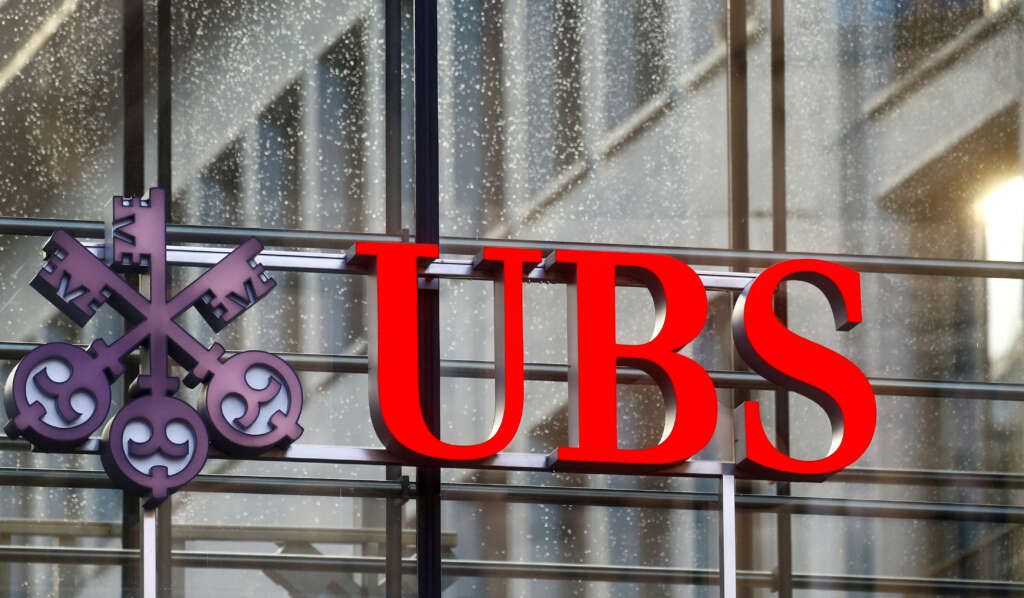
UBS resumes buybacks, seeks more cost savings from Credit Suisse takeover
By Noele Illien
ZURICH (Reuters) -UBS said on Tuesday it would restart share buybacks and find $3 billion more in cost savings from integrating Credit Suisse, as the bank outlined the next phase of absorbing its fallen rival after underwhelming fourth-quarter results.
The Swiss bank now expects $13 billion in cost savings by the end of 2026 – with half of it to come from slashing headcount, UBS Chief Financial Officer Todd Tuckner said. UBS had previously set a goal of more than $10 billion.
UBS’s shotgun takeover of Credit Suisse last March was the first-ever merger of two global systemically important banks, and UBS has since managed to avoid any major ructions, with its share price jumping some 50%.
The bank declared the first phase of the integration complete on Tuesday, but there remains a long way to go, with trickier stages still to come including thousands of job losses and the combining of different IT systems. UBS CEO Sergio Ermotti said progress over the next three years would not be “measured in a straight line”.
UBS shares were down 2.5% by 1100 GMT, against a 0.8% rise in the STOXX Europe 600 banks index.
NEW WEALTH MANAGEMENT TARGETS
The Swiss bank affirmed key financial targets and set new ones, including an ambition for its huge wealth management arm to boost invested assets to $5 trillion by 2028 from $3.85 trillion currently.
Analysts gave its fourth-quarter results a lukewarm response, although they welcomed a proposed 27% increase in its 2023 dividend to $0.70 per share and the restart of buybacks that will begin with up to $1 billion in the second half of 2024.
European banks have been shelling out record sums to shareholders making UBS, which suspended buybacks after the Credit Suisse deal, an outlier.
“While Q4 results disappointed on costs (revenues broadly in line), targeting higher gross savings out to 2026 should provide some comfort that costs can remain under control,” said RBC analyst Anke Reingen.
“We believe the update may underwhelm high expectations,” wrote Keefe, Bruyette & Woods analyst Thomas Hallett.
The cost of absorbing Credit Suisse led the world’s biggest wealth manager to post a net loss of $279 million in the fourth quarter, slightly smaller than a company-compiled consensus estimate for a $285 million loss.
The bank’s global wealth management arm saw net new money of $22 billion in the fourth-quarter, although a change in the metric UBS uses made it difficult to compare with the previous quarter.
“With enhanced scale and capabilities across our leading client franchises and improved resource discipline, we will drive sustainable long-term growth and higher returns,” CEO Ermotti said in a statement.
The lender’s previous $6 billion buyback programme from 2022 was initially slated to end in March 2024 but was put on hold following the Credit Suisse acquisition.
“Our ambition is for share repurchases to exceed our pre-acquisition levels by 2026,” the bank said.
INVESTMENT BANK LOSS
UBS’s investment bank reported a pretax loss of $169 million but is expected to return to profitability in the first quarter “due to improving market activity, a growing banking pipeline and advanced progress on the integration.”
The bank also expects net interest income for personal and corporate banking and global wealth management to be roughly flat in the first quarter, which it said would help boost net profit in the period.
UBS still has to combine legal entities as it absorbs Credit Suisse. It is set to begin migrating Credit Suisse clients, with clients in Singapore, Hong Kong and Luxembourg the first to be moved.
Concerns also abound about the potential for friction with regulators worried about risks to the Swiss economy should the bank get into trouble and given its size – UBS’s balance sheet is now more than $1.6 trillion, nearly twice the size of Switzerland’s economy.
UBS has said the focus on its balance sheet is misleading, adding that it holds around 20% of total assets in highly liquid assets and another 15% in low-risk mortgages to retail and wealthy clients.
(Writing by Noele Illien and Tommy Reggiori WilkesAdditional reporting by Oliver Hirt in ZurichEditing by Edwina Gibbs and Sharon Singleton)


